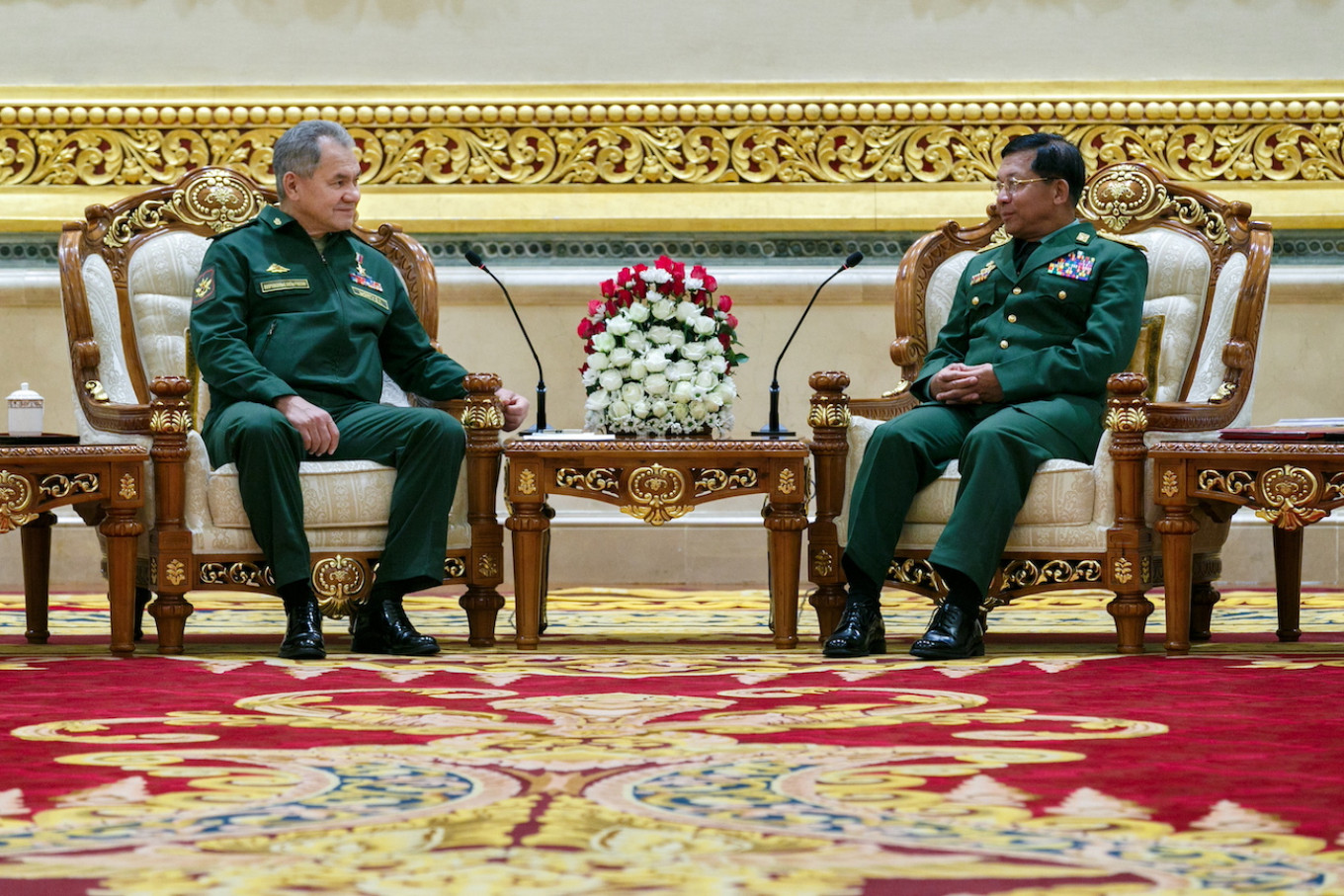
Russia and Myanmar are deepening their defense ties as Moscow’s military supplies continue to pour into the country, Russian Deputy Defense Minister Alexander Fomin said Friday at a meeting with the country’s commander-in-chief Min Aung Hlaing.
Fomin’s visit marked the first high-profile visit to Myanmar by a foreign official since the country was rocked by a military coup that deposed its elected leadership in February.
“The Russian Federation adheres to a strategic line to intensify relations between the two countries,” Fomin said at the meeting.
Russia considers Myanmar a reliable ally and strategic partner in Southeast Asia and the larger Asia-Pacific region, the deputy defense minister added.
Alongside China, Russia has repeatedly shielded Myanmar from criticism at the UN over its crackdown on the Muslim minority Rohingya population. Russia has also continued to support Myanmar’s junta leadership, calling the coup “purely a domestic affair of the sovereign state.”
Reuters reported Friday that Myanmar’s security forces have killed over 300 people in attempts to crush opposition to the Feb. 1 coup, citing data from an advocacy group and local media.
Russia has a long history of supplying military equipment to the country and has been steadily increasing its military cooperation with Myanmar.
In January, Russia agreed to supply Myanmar with Pantsir-S1 surface-to-air missile systems, Orlan-10E surveillance drones and radar equipment during Defense Minister Sergei Shoigu’s visit to Naypyidaw a week before the coup began.
Russian military convoys that were reportedly used during the coup are part of the growing list of defense supplies shipped from Moscow to Naypyidaw in recent years.
According to Stockholm International Peace Research Institute data for 2019, Myanmar’s spending on Russian arms imports totaled an estimated $807 million for the decade.
Dmitry Mosyakov, professor at Institute of Oriental Studies of the Russian Academy of Sciences in Moscow, said that the visit showed that Russia is eager to cooperate with the military junta.
“Russia is sending out a strong signal that from their side, relationships haven’t changed, it’s business as usual,” he told The Moscow Times.
“Myanmar remains a big importer of Russian arms, of course. Maybe now more than ever, their military leadership feels like it needs to purchase arms from Russia as it has a growing number of internal and external threats,” Mosyakov added.
Russia’s show of support for Myanmar’s military junta comes amid strong condemnation from Western nations. China, historically Myanmar’s main ally in the region, also recently criticized the situation there, saying the violence was “absolutely not what China wants to see.”
Nay San Lwin, co-founder of the Free Rohingya Coalition human rights group, criticized Russia’s latest overtures to the country in a statement to The Moscow Times.
“This visit shows that Russia is supporting the brutal Myanmar military. Russia needs to realize that they are now collaborating with figures have committed crimes against humanity,” he said.